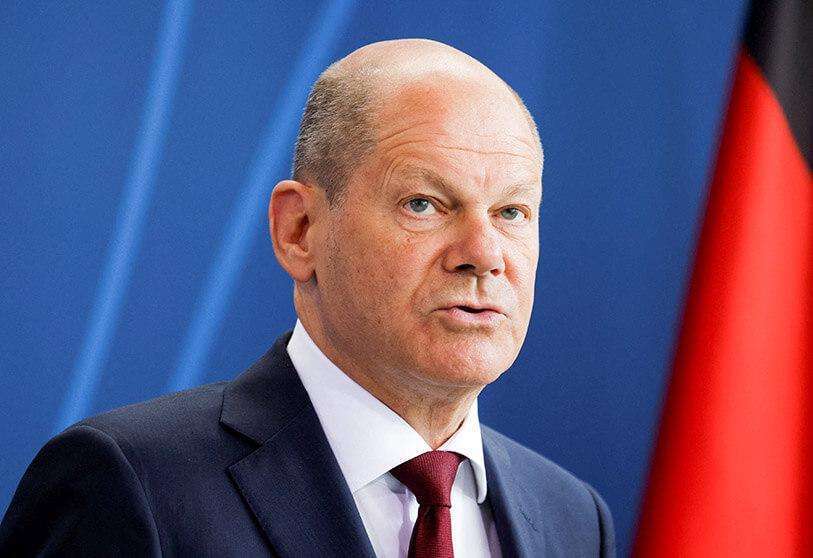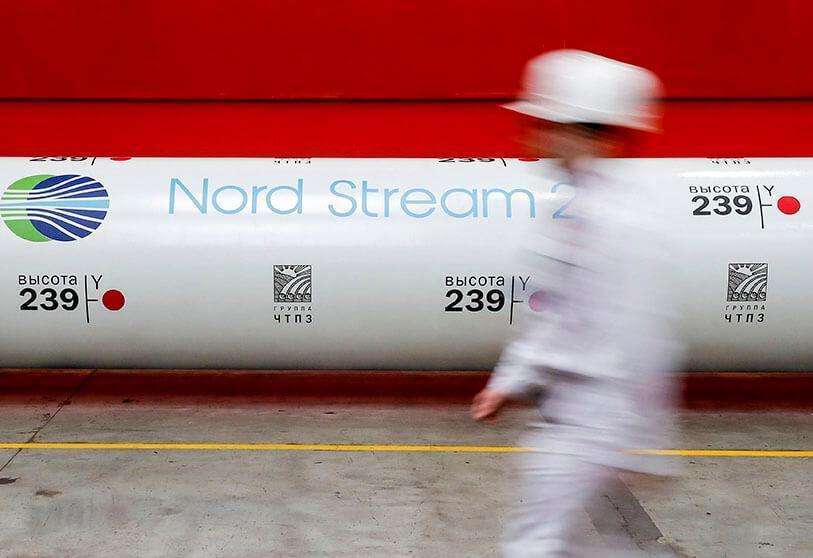European capitals take action over Russian gas cuts

This week, Germany, France and Italy have seen a reduction in Russian natural gas deliveries, while several European countries are responding as best they can to fears of a supply shut-off.
On Tuesday, Gazprom announced a 40% reduction in natural gas exports through the Nord Stream I pipeline, which links Russia to Germany via the Baltic Sea. The Russian energy giant cited technical problems, claiming that German firm Siemens Energy had been delayed in repairing compression turbines, something denied by Berlin. "This is obviously a strategy by [Russian President Vladimir] Putin to reduce our [energy] security, increase prices and divide us," said Robert Habeck, Germany's vice-chancellor and economy minister.

Meanwhile, French gas company GRTgaz announced on Friday that since 15 June Paris had stopped receiving Russian gas via a pipeline through Germany, in connection with the reduction of supplies through Nord Stream I.
Meanwhile, Eni, Italy's leading energy company, has reported a sharp drop in Gazprom supplies over the past week, receiving 85% of the requested gas on Wednesday, 65% on Thursday and 50% on Friday, and the Russian energy giant announced on Monday that it will continue to meet deliveries only partially.
Kremlin spokesman Dmitry Peskov cited maintenance problems, something Italian Prime Minister Mario Draghi called a "lie". "The reality is that they are making political use of gas, just as they are doing with grain," the Italian politician said during his visit to Kiev.
Meanwhile, Gazprom also announced on Monday that it had shipped only 41.7 million cubic metres of gas through Ukraine to Europe, less than half the usual amount, citing the Ukrainian closure of one of the two gas routes through the country in May.
Previously, Moscow had demanded that all countries it considers 'hostile' pay for Russian natural gas imports in roubles, cutting off supplies to those that refused to accept the scheme, including Poland, Bulgaria and Finland. Paris, Berlin and Rome have pledged to comply with Russian demands, but are still experiencing disruptions in deliveries.

There are fears in Europe that Russia is taking advantage of the EU's energy crisis to use natural gas as leverage to force Russia to relent in its support for Kiev. Several capitals suggest that Moscow could turn off the tap for the winter, endangering the energy security of EU countries in the months of greatest need.
As a countermeasure, Habeck said in a statement, Germany would have to reduce natural gas-fired electricity production, for which Berlin would have to use coal-fired power plants, a more polluting source.

The Green Party politician described these measures as "bitter" but "necessary", jeopardising the German coalition's commitment to stop using coal in its energy mix by 2030. Habeck also suggested that Germany will take steps to increase its gas reserves for the winter, pushing for a reduction in gas consumption, amid fears that Moscow could turn off the tap in those critical months. Berlin aims to fill its reserves to 90% by November, having reached 57 % on 17 June.
These steps have been followed by Austria, whose government announced on Sunday that it had reached an agreement with Verbund, the national electricity supplier, to adapt a gas-fired power station to be able to use coal, amid fears of a reduction in supply in a country that is up to 80 per cent dependent on Russian gas.
Meanwhile, France, which before the halt in Russian supplies was buying up to 17% of its total from this source, is importing record amounts of gas through the pipeline that connects it to Spain. However, Paris is also importing large quantities of Russian liquefied natural gas, thus maintaining its energy relationship with Moscow despite the pipeline cut.

The Italian government, meanwhile, will hold meetings on the issue next week, and government sources quoted by Reuters suggest that Rome may declare an energy "state of emergency".
Most EU countries depend to a greater or lesser extent on Russian natural gas, which before Russia's invasion of Ukraine accounted for up to 40% of the EU-27's total. The European Commission has announced its intention to end imports of Russian fossil fuels, and the EU has already taken action on coal and oil. In addition, the Commission plans to reduce Russian gas imports by up to two-thirds by the end of 2022, and a total cut by 2027, but dependence on this source in several capitals has so far prevented agreement on this.

Earlier, Vladimir Putin emphasised at a government meeting in April the need to redirect Russian energy exports to Asia. "We must proceed on the basis that, in the foreseeable future, energy supplies to the West will be reduced," Putin predicted, blaming Western countries for this. "We have to change the direction of our exports to the fast-growing markets of the South and East," the long-serving Russian leader said at the time.
Moscow exports most of its natural gas to Europe, but has been seeking to diversify its buyers for several years through the expansion of liquefied natural gas projects and the construction of new pipelines to China. In February, during Putin's visit to Beijing, the two powers agreed to build a new pipeline from Russia's Asian gas reserves, and now Russia also wants to build a pipeline to China from Western Siberia, the main source of its exports to Europe. This would allow the Kremlin to shift the centre of gravity of its shipments from west to east and compensate for a possible reduction in its sales to the old continent.









